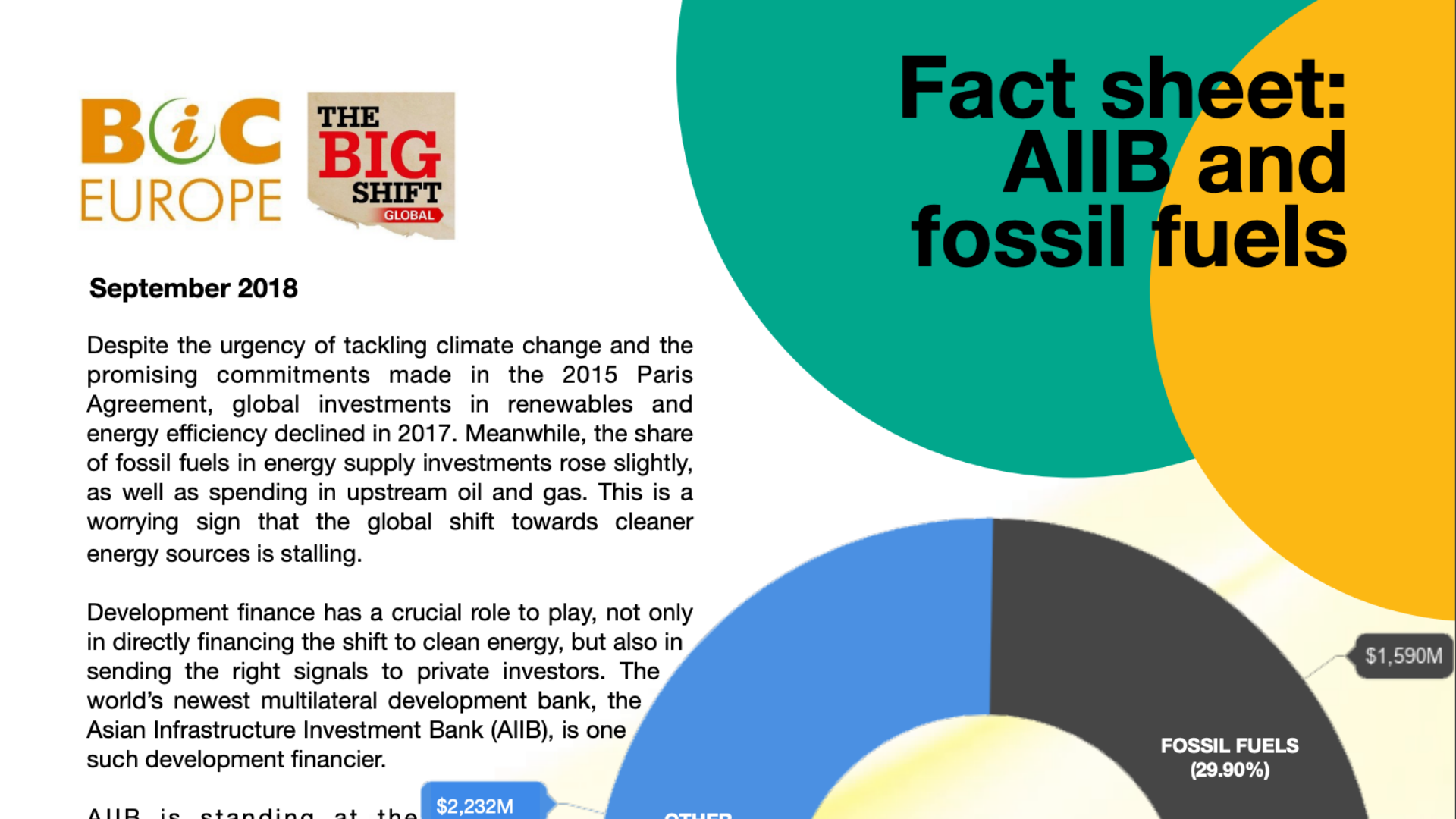- 12.09.2018
- Ecological justice
- Array
Despite the urgency of tackling climate change and the promising commitments made in the 2015 Paris Agreement, global investments in renewables and energy efficiency declined in 2017. Meanwhile, the share of fossil fuels in energy supply investments rose slightly, as well as spending in upstream oil and gas. This is a worrying sign that the global shift towards cleaner energy sources is stalling.
Development finance has a crucial role to play, not only in directly financing the shift to clean energy, but also in sending the right signals to private investors. The world’s newest multilateral development bank, the Asian Infrastructure Investment Bank (AIIB), is one such development financier.
AIIB is standing at the crossroads. Its commitment to be ‘green’ and towards the implementation of the Paris Agreement is encouraging, and its 2017 Energy Sector Strategy (ESS) emphasises the importance of renewable energy and energy efficiency to achieve these goals. It could play a key part in tilting the balance towards clean and more efficient fuels.
But the AIIB is yet to walk the talk in terms of investing where it matters. The ESS lacks a prohibition against fossil fuels, or even coal. And after over two and a half years of operation, having made over US$5 billion worth of investments, nearly a third has backed fossil fuels. This stands in sharp contrast to its investment in renewables at only just over 10% – and this primarily into large-scale projects. In its energy sector portfolio this translates into a staggering 61% of investments towards fossil fuels, against only 22% for renewables. And this is not counting support for fossil fuels invested indirectly by AIIB through financial intermediaries.
AIIB should live up to its ‘green’ promise by:
• Ending all AIIB investments in coal mines and coal power – including those funded indirectly and for power generation or industrial uses, plus facilities such as transmission lines and railways or ports primarily meant for the transportation of coal.
• Matching the World Bank’s recent commitment to end upstream financing for oil and gas extraction, and making a plan to phase out investment in fossil fuels by 2020.
• Ensuring all energy projects funded by the AIIB help lift more people out of energy poverty in a sustainable way, especially by scaling up support for decentralised renewable electricity and clean cooking solutions. This should exclude large hydro dams which can cause extensive social and environmental harms.

